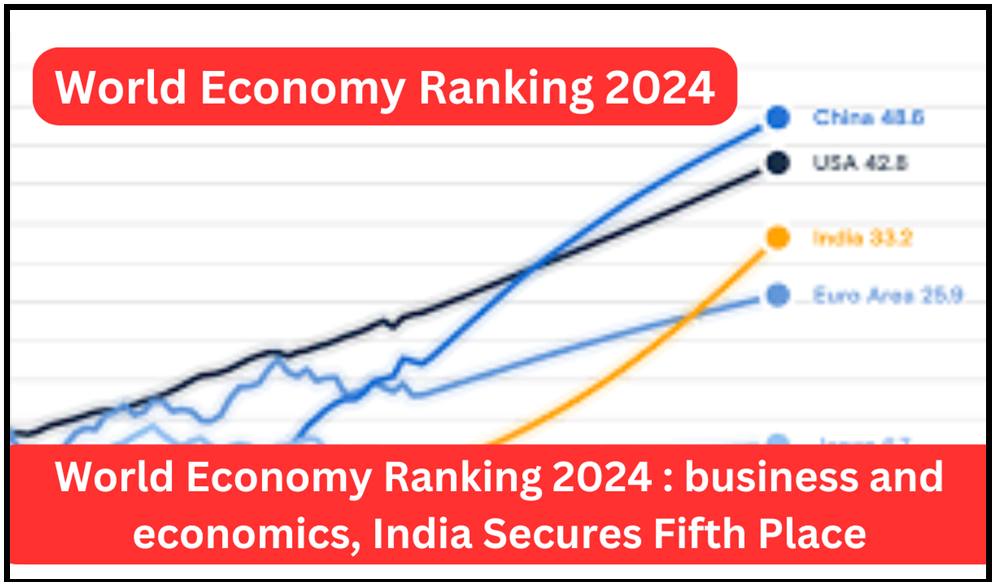DISCONNECT BETWEEN INDIA’S ECONOMIC GROWTH AND GLOBAL RANKINGS
Syllabus:
- GS-3- Economic situation in India , Issues at global level and solutions
Focus :
- The article addresses the disconnect between India’s rising economy and its declining positions in various global indices, highlighting perceived biases and flaws in these rankings. It critiques the methodologies of international indices and suggests the need for India to develop its own metrics to reflect its unique developmental path.
Source - TH
- Economic Progress vs. Global Rankings:
- India’s economic growth is notable, but its global rankings are not reflecting this progress.
- Example: India slipped to 129th out of 146 nations in the World Economic Forum’s Global Gender Gap index.
- In the Corruption Perceptions Index, India’s rank fell from 85 to 93 between 2022 and 2023.
- Despite advancements in digitalization, India ranks low in related indices.
- Specific Indices:
- UN’s e-Government Development Index 2022 ranks India at 105, below Barbados, Fiji, and the Maldives.
- International Telecommunication Union’s ICT Development Index excluded India in 2023; it was ranked 134 in 2017.
- These rankings seem contradictory given India’s significant achievements in digital infrastructure.
Examination of Possible Explanations
Global Conspiracy Theory:
- A potential explanation is the existence of a global conspiracy to undermine India’s progress.
- However, this theory is unlikely because the West has been positioning India as a counterbalance to China.
- During India’s G20 presidency, Western countries worked with India to ensure the summit’s success.
Limitations of Manipulation:
- Many global institutions prepare these rankings, making widespread manipulation implausible.
- Manipulation by a few entities cannot account for consistently poor rankings across multiple indices.
Critique of Global Ranking Methodologies
Intellectual Arrogance:
- Global ranking organizations often exhibit intellectual arrogance, believing there’s only one path to development.
- They tend to disregard alternative development paths taken by countries like India.
Narrow Notion of Digitalization:
- Global indices often capture a limited view of digitalization, focusing primarily on fixed broadband access.
- This approach overlooks the unique digitalization journey of developing countries where mobile internet plays a significant role.
Scale and Breadth Ignored:
- These indices measure digitalization for the average user, ignoring the vast scale of India’s digital network.
- Example: Fiji ranks higher than India due to a higher percentage of internet access, despite having only 0.8 million users compared to India’s 800 million.
Double Counting Problem:
- Global indices often double count digitalization’s outputs and inputs, penalizing developing countries twice.
- This skewed methodology affects India’s rankings adversely.
Alternative Perspectives and Recommendations
State of India’s Digital Economy (SIDE) Report:
- ICRIER’s report identifies the flaws in global digitalization indices.
- Correcting these flaws shows India as the third-largest digitalized country after the US and China.
Need for Honest Global Indices:
- India needs to create and promote its own global indices that accurately reflect its developmental realities.
- This approach can expose the biases and limitations of existing global rankings.
Government’s Role:
- The Government of India (GoI) must support academic institutions and think tanks with adequate funding and intellectual freedom.
- These institutions can then develop and disseminate rankings that align with Indian conditions.
Strategic Response:
- Instead of emotional reactions, India should systematically address and expose the flaws in global indices.
- Building credible, alternative indices can help challenge the existing prejudices and present a more accurate picture of India’s progress.
Conclusion
Call for Change:
- There is an urgent need for India to redefine how its progress is measured globally.
- Creating unbiased, accurate global indices within India can challenge the prevailing narratives.
Future Steps:
- Encourage intellectual rigor and integrity in developing these indices.
- Use these new indices to advocate for a fairer representation of India’s achievements on the global stage.
Source:The Hindu
Mains Practice Question :
GS-3
“Discuss the disconnect between India’s economic growth and its rankings in various global indices. Critically analyze the methodologies of these indices and suggest ways in which India can develop its own metrics to reflect its developmental path more accurately.”(250 words)




